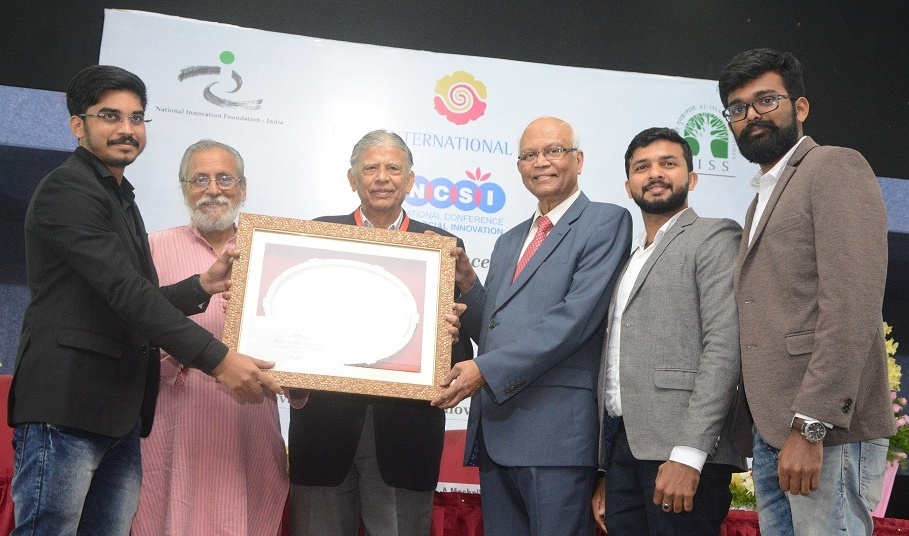Pune : Robot tackling manual scavenging receives Anjani Mashelkar Award for Inclusive Innovation

Pune, November 17, 2019: Young engineers from Thiruvananthapuram-based GenRobotic Innovations who have devised world’s first robotic scavenger called ‘Bandicoot’ to tackle the problem of manual scavenging in India were felicitated with 9th Anjani Mashelkar Inclusive Innovation Award, which runs under the aegis of Anjani Mashelkar Foundation in the inaugural session of the 7th National Conference on Social Innovation (NSCI) held by Pune International Centre (PIC) today at Yashada, Baner.
The event was organized by PIC in association with Tata Institute for Social Sciences (TISS) and National Innovation Foundation (NIF), during which GenRobotic Innovations and Brabo Robotics and Automation joined hands for manufacturing ‘Bandicoot’, that cleans manholes remotely using robotic arms and computer vision.
The three engineers including Vimal Govind MK, CEO, GenRobotic, Rashid, Director, Genrobotic and Nikhil N.P, CTO, GenRobotic were awarded with the at the hands of Dr. Ragunath Mashelkar, President of PIC and Dr. Vijay Kelkar, Vice President, PIC.
Dignitaries including eminent Scientists like Dr. Jayant Naralikar, Dr. Vijay Bhatkar and Dr. Govind Swaroop along with Dr. S. B. Mujumdar, Founder, Symbiosis, Prof. Anil Gupta, Founder, Honey Bee Network and Prashant Girbane, Honorary director, PIC were present at the event.
While speaking at the conference, Vimal said, “There are more than 3 crores manholes in India, which are cleaned manually. Due to that, about 23,000 people die every year in India and 98 percent suffer from various diseases. Since the cleaning of manholes requires human level of flexibility, we explored human faculties like intelligence, vision and flexibility and replace them with technology. This bandicoot outsmarting, using its robotics arm it can perform as flexible as humans.”
The robot has been already implemented in six states in India and the scavengers will be employed to operate the robots.
“It’s shameful that in India more than 50 lakh people are engaged in this inhuman practice of scavenging due to unemployment. But innovation leads to transformation and India can create scientific and technological solutions which could transform lives,” said Dr Mashelkar.





